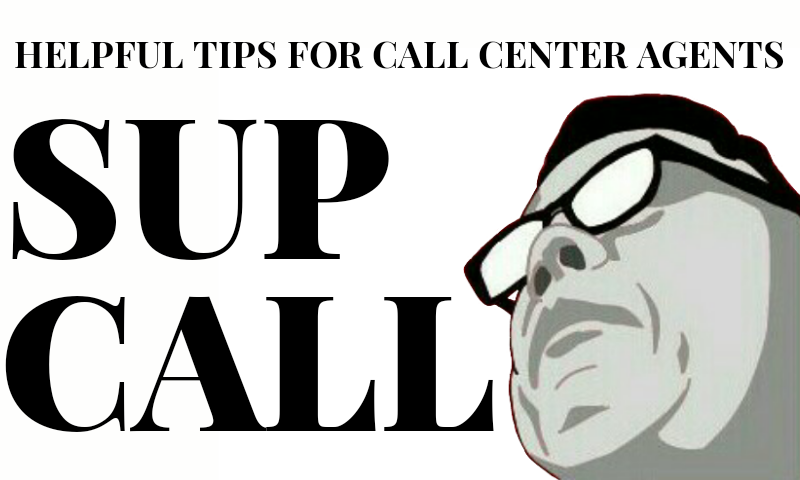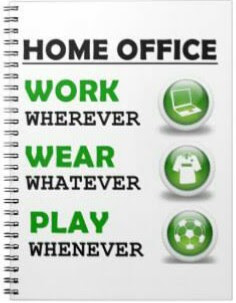 |
| The Virtual Call Center Representative |
The internet not only made this world a lot smaller but also opened up a whole new world of online income opportunities for people who, by choice or circumstance, need to work from home. As long as you have the skills, professional work attitude and the necessary hardware and internet service that the client requires, you can always try working from home as a virtual call center representative.
Like everything else, there are always pros and cons working as a virtual call center representative. We have listed down some of these pros and cons so you can make a more insightful decision whether working as a virtual call center representative is perfect for you.
PROS:
More Family Time
Having more time for your family is probably the top reason why you may want to consider working from home as a virtual call center representative. The ability to watch over your kids or to care for an elderly parent while still being able to provide well for them would not be possible if you worked regular jobs in an actual office setting. Working from home as a virtual call center representative gives you the best of both worlds.No Commute
You have practically no need to commute to and from work. This saves you money and, more importantly, time. For employees who have to spend at least four hours stuck in rush hour traffic without pay everyday commuting to and from work, the prospect of never ever having to commute anymore is a dream come true. Your office is literally just a few steps away from your bedroom. You could spend more quality time with the family instead of wasting time crammed like sardines in a city bus stuck in traffic or waiting in line for a train that could break down at any time.Choose Best Schedule
Because there are thousands of prospective clients looking for virtual call center representatives, you have the flexibility to choose which schedule works best for you. You can choose outbound or inbound accounts. You can choose full time or part time jobs. You have a choice between dayshift and nightshift. If you hate working graveyard shifts, then working from home as a virtual call center representative is perfect. You can choose which client you would love to work with based on their client profile. You have a lot of flexibility to choose what’s best for you.No Dress Code
No rigid dress code required. You can literally work in your jammies although we don’t necessarily recommend this. You don’t want to be too comfy and fall asleep on the job. It would be nice to still dress up smart just to maintain professionalism even though you’re working from home as a virtual call center representative.Minimal Pay Deduction
In most cases, a virtual call center representative gets paid well and on time. Taxes and deductions are on a case to case basis since payments are usually done on line but it would be nice to still do your share and voluntarily pay your taxes and other dues.CONS:
No Floor Support
If you’re quite used to getting immediate floor support in a regular call center set up, don’t expect anyone coming to your support when you raise your hands and shout “Sup Call!” Your kids might think you’re silly raising your hands by your lonesome. Although there is a virtual team to support you, technically you are a one man team in your home office.No Labor Protection
If you’re used to charming your sup to look the other way, don’t expect your charm to work with your virtual sup. Clients expect competency and professionalism from their virtual call center representative and are usually not very lenient to errors and other infractions. It won’t take much for your client to just drop you from the account and there’s no HR for you to plead your case with.Your All Alone
If you love team building activities and having lunch with your team then maybe you should just stick to your current job. Working from home as a virtual call center representative tends to get lonely oftentimes, especially when the kids are already in school and you’re home alone.No Health Insurance
Not too many clients will include health insurance as part of your benefits. Every once in a while you may find clients offering fringe benefits but as a rule of thumb, clients hire virtual call center representatives mainly to save money. Other than paying you your salary, they have no contractual obligation to provide you any other benefits. It would be wise to save a part of your pay to take care of health insurance on your own.Distractions, Distractions, Distractions
There can be so much distraction that will draw your attention away from your work as a virtual call center representative. The fact that there is no physical sup to watch over you could tempt you to be lax at work or even sleep on the job. It will take a high degree of self-discipline and professionalism to work from home and succeed as a virtual call center representative.If you feel you have what it takes to work at home as a virtual call center representative, do your research first to see which online job portals are reliable and trust worthy. Check forums for feedbacks about any online job portal. Getting paid correctly and on time is almost always a big issue among virtual call center representatives so make sure you look for these feedbacks. It would also be wise to start saving for a more reliable desktop or laptop. Your computer is your lifeline once you work from home as a virtual call center representative. Unlike a regular call center setting where you can just transfer workstations, if your computer breaks down you may lose your account if the issue is not addressed right away. You also need a more reliable high speed internet service. Most clients will require stable internet service with speed upwards of 5Mbps.
One online job portal that I have personally tried is onlinejobs.ph. Considering my current situation where I cannot really commit to a full 8-hour schedule, I have the flexibility to apply for a part time position and even found some clients that hire on a per project basis which works best for me. You might want to check out onlinejobs.ph yourself. Just click on this LINK or the banner below. Spoiler alert, there’s an English proficiency test as well as an IQ test you first need to take when building your profile but I’m perfectly sure you would have no problem passing those tests.
Again, working from home as a virtual call center representative is not for everyone. If you’re doing great where you’re at right now, stay. On the other hand, if you’re looking to try something different, then go ahead and check out Onlinejobs.ph.
Thanks for spending time here. See you next post. Have a wonderful shift!











